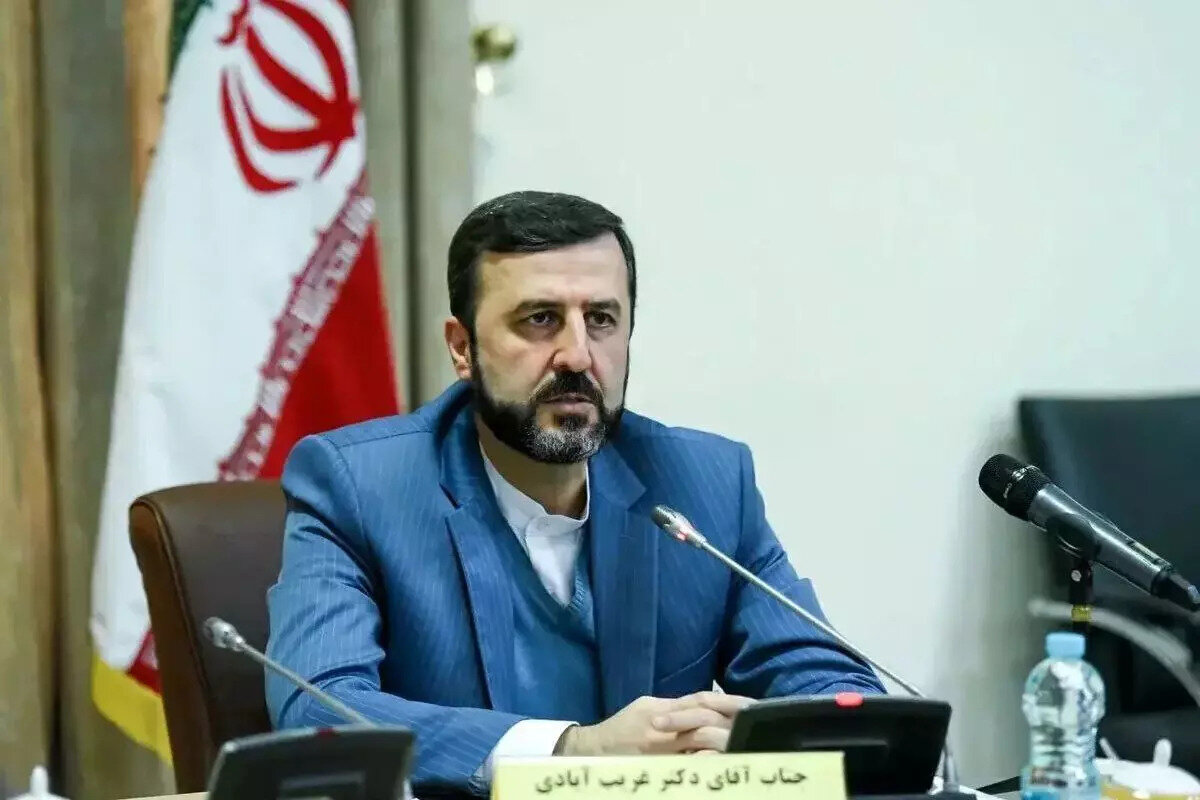Iran warns IAEA not to test its patience after watchdog’s politically charged report

TEHRAN – Iran’s Deputy Foreign Minister for Legal and International Affairs, Kazem Gharibabadi, has issued a stern rebuke of a recent International Atomic Energy Agency (IAEA) report on Iran’s nuclear activities, describing it as a politically motivated document reliant on “fabricated data” from the Israeli regime.
In a statement on Sunday, he asserted that certain states have exploited the IAEA to unjustly pressure Iran, while staunchly defending Tehran’s adherence to nuclear safeguards.
Gharibabadi addressed the report’s focus on alleged nuclear material traces at four sites—Lavizan-Shian, Marivan, Varamin, and Turquzabad.
“The entirety of this report pertains to the alleged presence of a limited amount of nuclear material at four purported locations more than two decades ago, based on a series of fabricated data provided by the Zionist regime,” the senior diplomat wrote.
Gharibabadi emphasized that “nowhere in the report is there any ambiguity concerning Iran’s current nuclear activities or any deviation in its nuclear materials or operations.”
He argued that the 2015 Joint Comprehensive Plan of Action (JCPOA) resolved questions about Iran’s past nuclear program, rendering attempts to reopen them a violation of that agreement.
For Lavizan-Shian and Marivan, Gharibabadi pointed out that the IAEA has already deemed these issues closed, dismissing their mention as a recycling of “old, unsubstantiated allegations” for political purposes.
Regarding Varamin and Turquzabad, he highlighted Iran’s cooperation, noting that Tehran has provided the IAEA with “necessary explanations and supporting documents” during recent inspections.
“The Islamic Republic of Iran has had no undeclared nuclear materials or activities, nor does it currently possess any,” he affirmed.
On the topic of Iran’s 60% uranium enrichment, which the report flags as a “concern,” Gharibabadi called the criticism baseless, asserting that these activities are fully monitored by the IAEA and legally justified.
He wrote that Director General Rafael Grossi has politicized the issue, describing it as an overreach of the agency’s technical mandate.
He also defended Iran’s decision to revoke certain inspectors’ designations as a sovereign reaction to European political maneuvers, noting that 120 inspectors from various countries continue their work in Iran uninterrupted.
While acknowledging the IAEA’s 2024 Safeguards Implementation Report, which confirms no diversion of Iran’s nuclear materials, Gharibabadi issued a pointed warning to states manipulating the agency: “Should these states choose to abuse Iran’s patience and persist in their erroneous path, Iran will be compelled—commensurate with the evolving circumstances and actions of the other parties—to adopt and implement appropriate decisions, the responsibility, consequences, and ramifications of which shall rest entirely with those states.”
The statement follows a confidential IAEA report claiming undeclared nuclear activities at three sites and noting Iran’s stockpile of 60%-enriched uranium has reached 408.6 kilograms.
Iran’s Ministry of Foreign Affairs and Atomic Energy Organization condemned the report as a distortion driven by the UK, France, Germany, and the US, accusing them of violating the JCPOA and UN Security Council Resolution 2231.
Tehran underscored its extensive engagement with the IAEA, including multiple high-level visits, and dismissed the report’s reliance on “fabricated documents.”
Iran reiterated that its defense doctrine, rooted in a fatwa by the Leader of the Islamic Revolution, Ayatollah Seyyed Ali Khamenei, prohibits nuclear weapons, and warned that continued political pressure would prompt decisive action to safeguard its rights.
Araghchi reinforces Iran’s position
In a related development, Iranian Foreign Minister Abbas Araghchi held a phone call with IAEA Director General Rafael Grossi on Saturday.
Araghchi urged the agency to resist political exploitation and focus on Iran’s demonstrated transparency and technical cooperation.
He called on Grossi to highlight this collaboration at the upcoming Board of Governors meeting, warning that any misrepresentation of facts would provoke a response.
“Iran will not tolerate the Agency being turned into a political instrument by European countries or others,” Araghchi stated. “Those who pursue such a course will bear the consequences.”
As senior Iranian officials stand firm in defense of the nation’s peaceful nuclear program, the repeated warnings signal that their patience is wearing thin. Tehran’s message is clear: it will not bow to external coercion and is prepared to respond if provocations persist.
